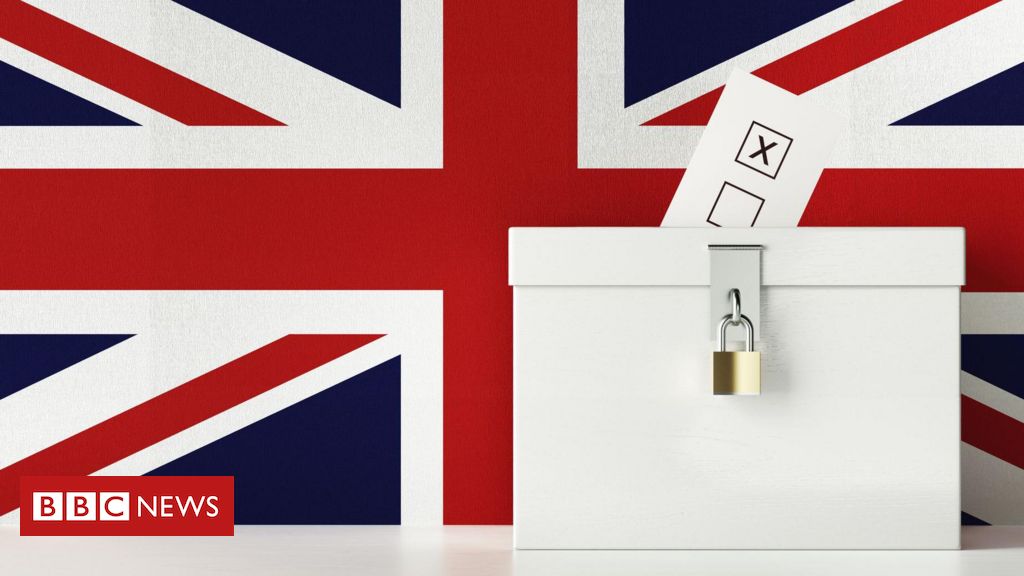The British election will be held this Thursday (4/7) to choose the next Prime Minister of the United Kingdom.
About 46 million voters are eligible to participate in the country’s first general election since 2019.
The election comes after Conservative Prime Minister Rishi Sunak called an early general election in May and dissolved the British Parliament (which is his legal right).
Below, we analyze some of the questions you may have on this subject.
When is the election?
General election will be held today Thursday (4/7). Political terms in the United Kingdom last five years, and the country’s Conservative Party won the election in December 2019, so the next general elections must by law be held by January 2025.
The United Kingdom is divided into 650 constituencies. Voters in each of these districts elect an MP to the House of Commons to represent the local population.
Most candidates represent a political party, but some are independent.
Why did Sunak call early elections?
Prime Minister Rishi Sunak’s Conservative Party has been falling in opinion polls since 2021.
Chris Mason, author of the BBC News Police report, says some party politicians “are worried things won’t get better and that the voter needs to have a voice soon, and delaying engagement with the electorate risks exacerbating a Conservative defeat”.
“In other words, do it now or it will get worse.”
“It appears that the Prime Minister has achieved or is on track to achieve at least some of his objectives.”
“The current inflation numbers can be considered a success. Of course, it’s not just the government’s actions. But governments are held accountable when (inflation) rises, so it’s reasonable to expect them to try to borrow when it falls. — and fell.”
“The broader economic picture looks a little more promising.”
How do the parties compare in the polls?
Recent opinion polls suggest Sunak’s Conservative Party is trailing its main challenger, the Labor Party.
In fact, over the past 12 months, Labor has been consistently polling more than 40% of the polls.
Of course, polls can be wrong, and Sunak believes the recent slowdown in inflation and a focus on party policy platforms will help the Conservatives turn things around.
But Labor continues to lead in the polls.
The anti-immigration far-right party Reform UK is in third place – but as its support is unevenly distributed across the country, it may be difficult to convert that support into seats in parliament.
The Liberal Democrats, once the country’s third largest party, continue to register an average of 10% of the electorate’s approval rating. But he believes that by focusing on the constituencies he is targeting, he can make gains come elections.
But after calling an early election, he decided to put the program on hold, saying the program would start if he was re-elected on July 4.
Labor has vowed to scrap the scheme if it comes to power, raising the question of whether anyone would be sent.
The scheme, which has already cost £240m, has been a major dividing line between the two main parties during the election campaign.
Who are the main candidates?
The ruling Conservative Party and the Labor Party are expected to get the most votes.
Prime Minister Rishi Sunak, 44, leads the Conservative Party. He was 42 when he became prime minister in 2022, making him the youngest person to hold the office in modern times. He was also the first British-Indian to become Prime Minister.
Labor leader Keir Starmer, aged 61. He succeeded Jeremy Corbyn as party leader in 2020. Previously, he was head of the Crown Prosecution Service (CPS), the UK’s public prosecution service.
The Prime Minister formally asked Charles III to “dissolve” Parliament – the official term for shutting it down before an election.
Parliament was dissolved on May 30.
As a result, members of parliament lost their status, and to remain in office, they had to stand for re-election.
More than 100 people said they will not run.
The government entered the pre-election period, which restricts ministerial and office activities during the campaign.
What happens after the election results?
After the votes are counted, the king asks the leader of the party with the most parliamentarians to become prime minister and form a government.
The leader of the party with the second largest number of MPs is the Leader of the Opposition.
If no party achieves a majority – i.e. cannot pass legislation with its own members of parliament – the result is a so-called hung parliament (Parliament was hung)
During this time, the largest party may decide to form a coalition government with another party or act as a minority government, relying on the votes of other parties to pass any bill.

“Internet addiction in terminals. Award-winning beer expert. Travel expert. General analyst.”







More Stories
Oil falls for 4th consecutive session on US stocks and conflict in Middle East – Money Times
Youth development in UK poultry farming is a new initiative in international production
Robert F. Kennedy Jr. considers abandoning campaign and endorsing Trump